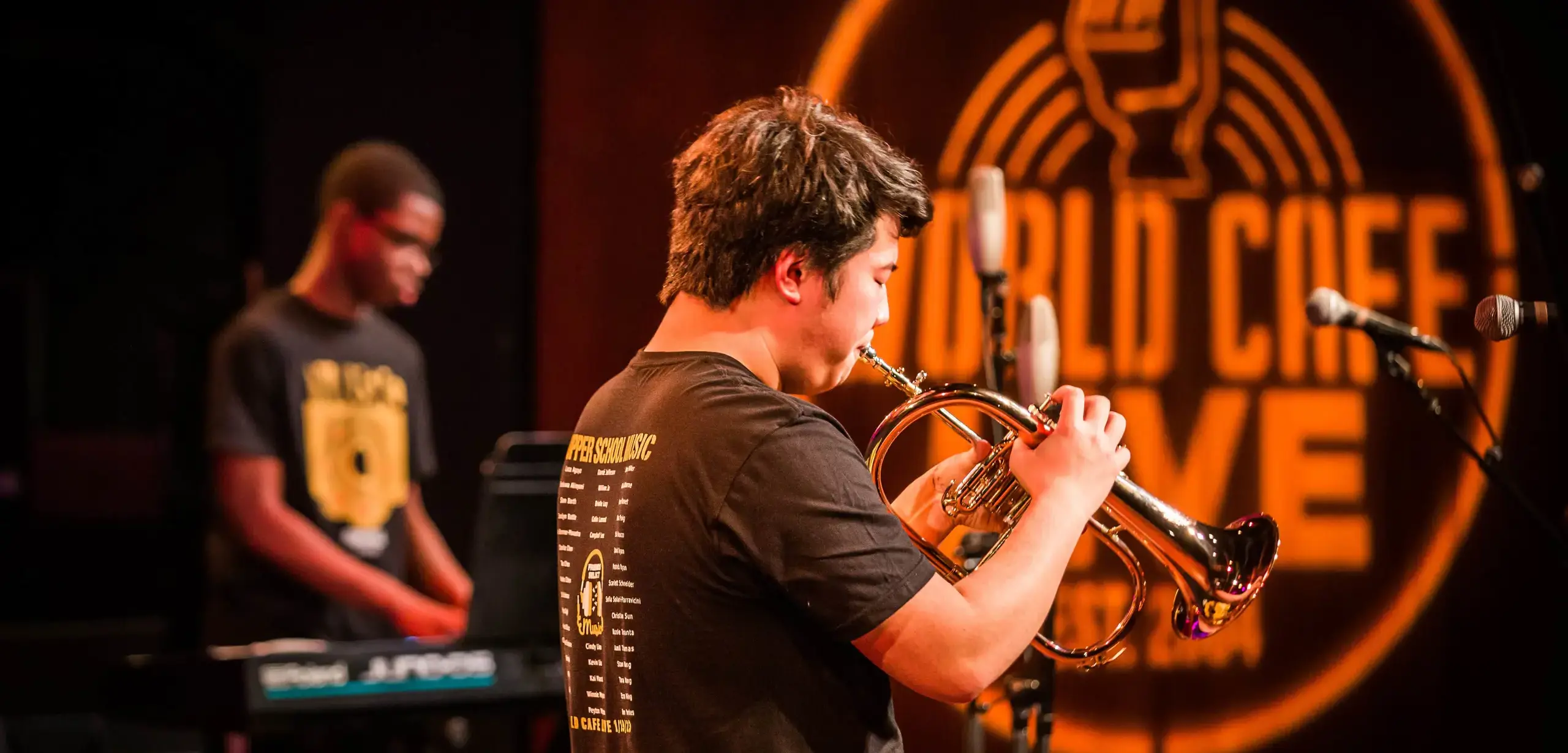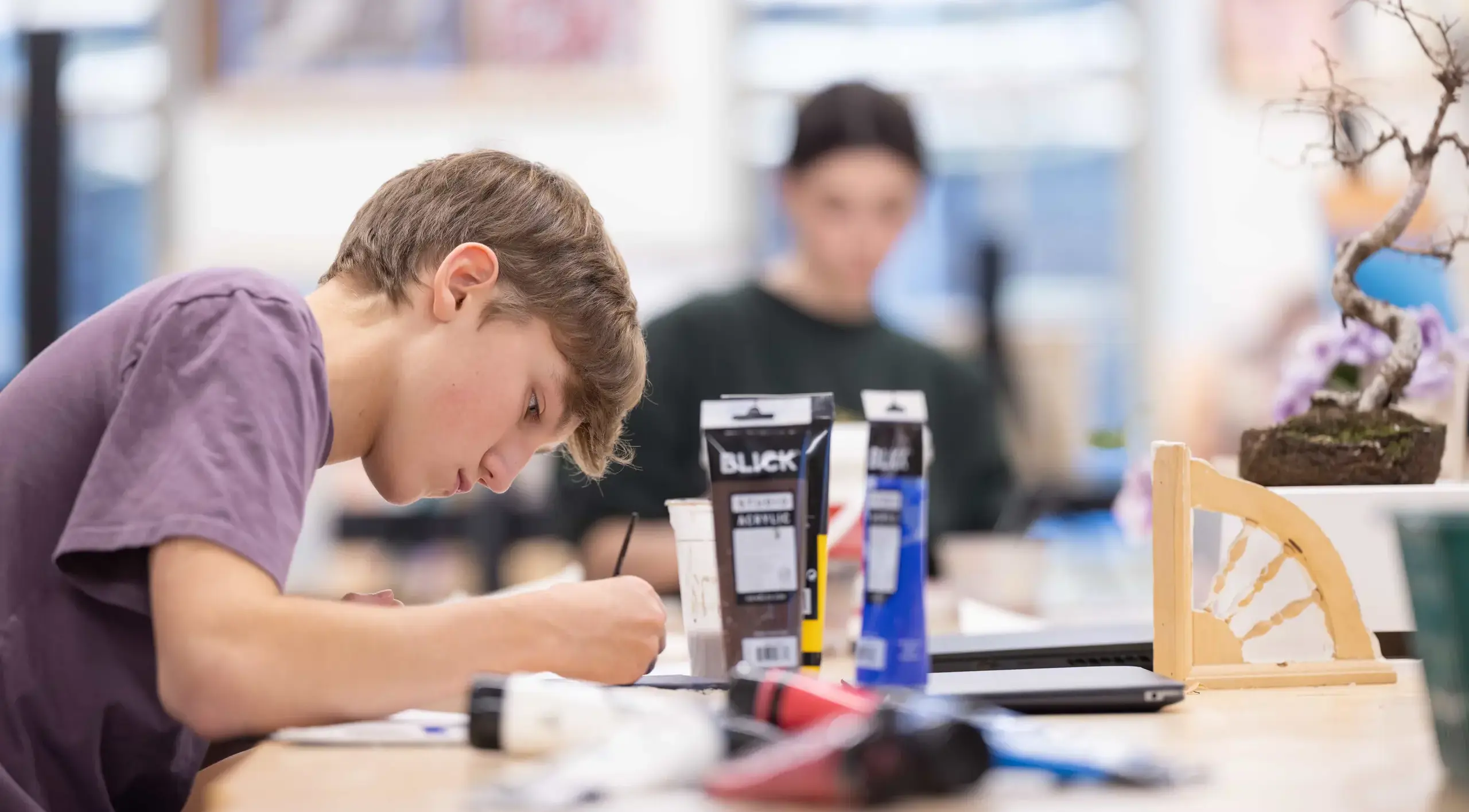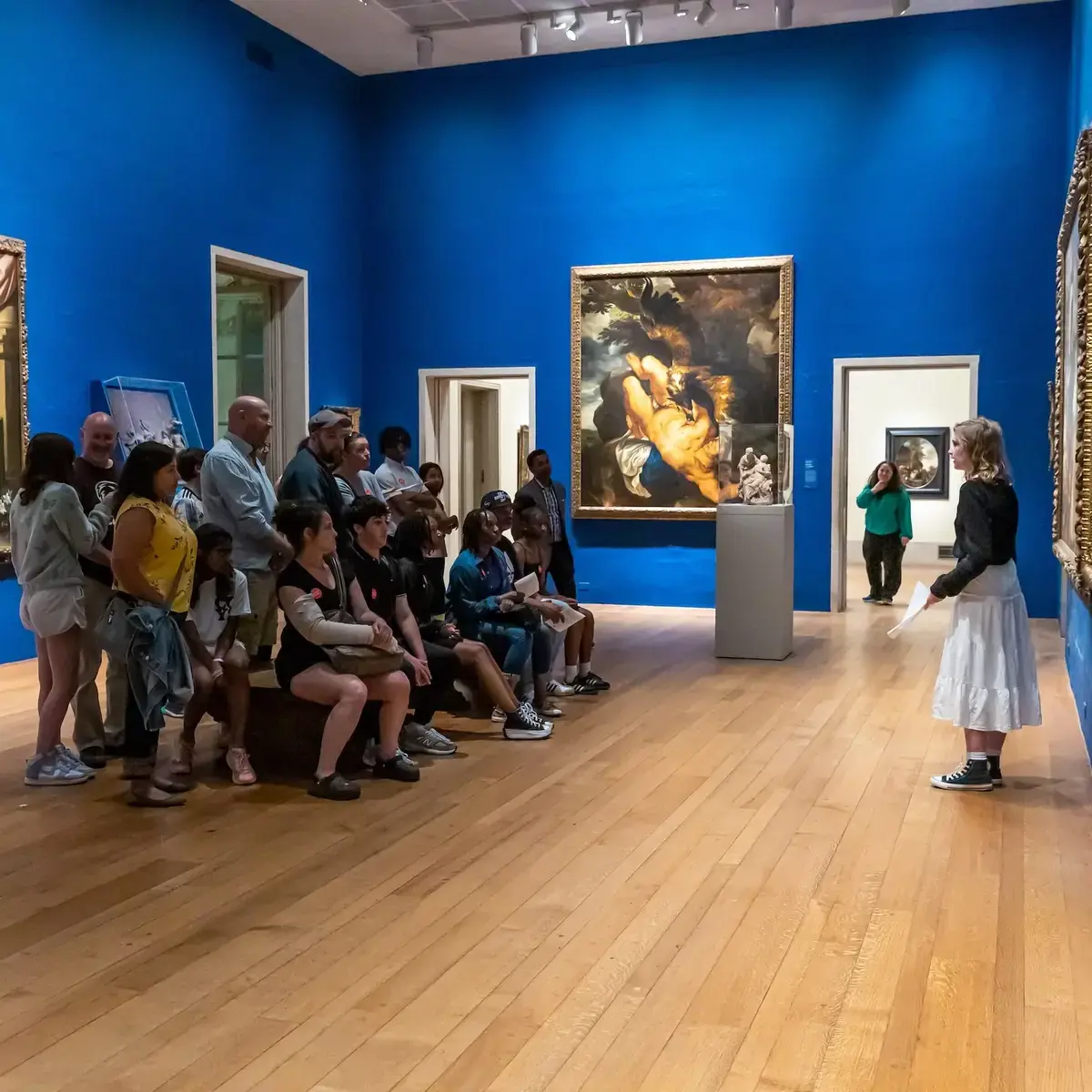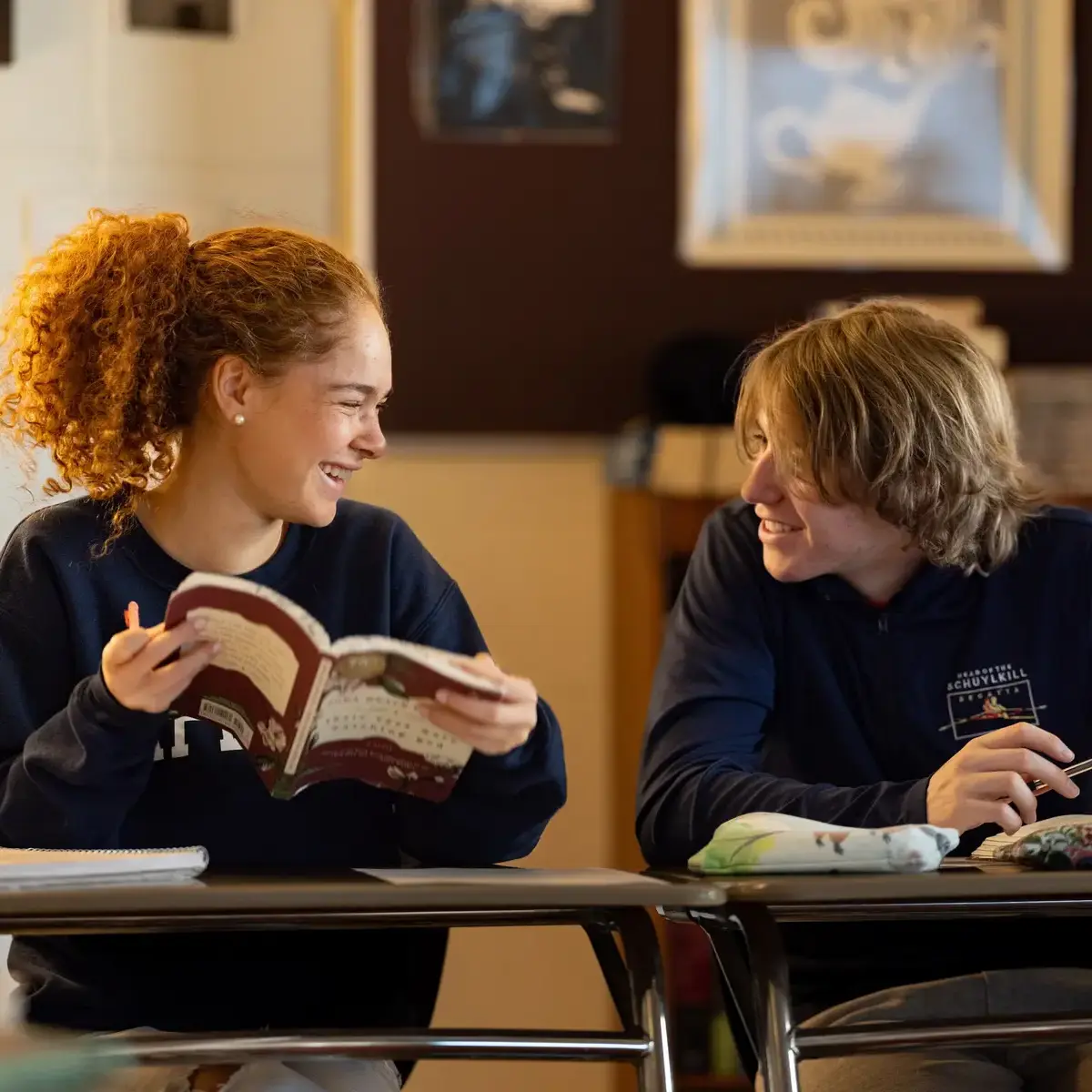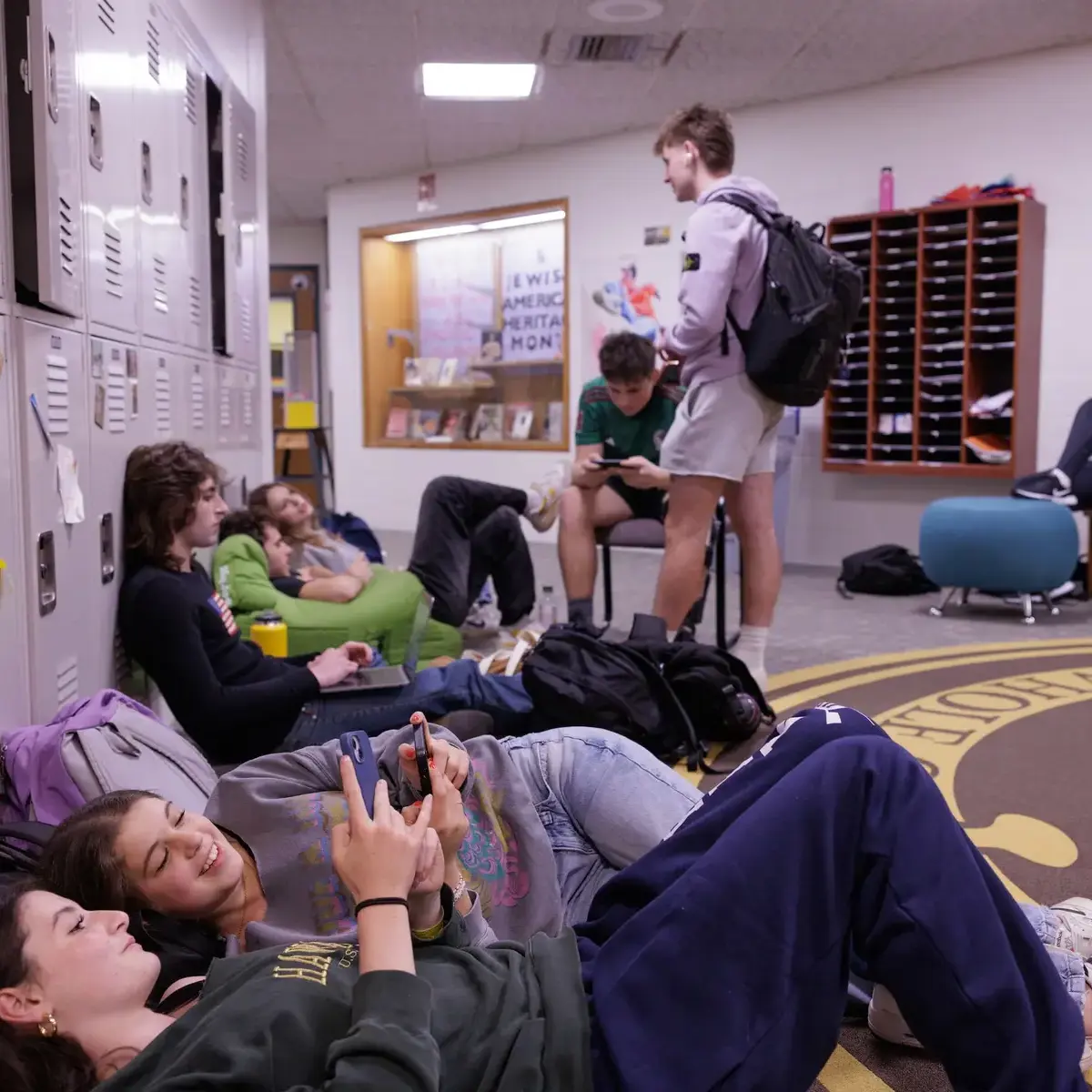Visual arts, drama, and music are woven throughout the Friends Select experience from pre-kindergarten through grade 12.
In addition to helping students discover their own artistic talents, our programs empower them to participate in the community of artists and musicians found right here at school and throughout Philadelphia. We use the arts to immerse students in a range of cultures, traditions, perspectives, and time periods. At Friends Select, we strive to provide students with broad exposure to the practice and history of the arts through inclusive and inventive teaching.
Visual Arts
Friends Select’s upper school visual arts program challenges students to explore, develop their craft, and express themselves through a range of mediums. Giving students time and space to create and reflect is a focus of our program, along with a study of artists from various backgrounds and traditions. Quaker values are central in our studios; students learn to appreciate each other’s work as a personal reflection of their inner selves. Philadelphia’s museums, art schools, and studios are integral to learning. Students participate in multiple exhibitions throughout the year, including our Sights on Site program, where they study and create artwork related to a neighboring institution.
In our 9th-grade Foundations course, students rotate through three main disciplines and studios: 2D art, such as drawing, painting, collage, and printmaking; digital art, such as illustration, photography, 3D modeling, and graphic design; and 3D art, including metalsmithing, glass, and sculpture.
Afterward, students can choose from a range of electives such as:
-
Drawing and Painting
-
Metalsmithing and Glass
-
Digital Art and Design
-
Digital Photography
-
Fiber Arts
-
Video Production
-
Printmaking
-
New Art History
-
Portfolio Preparation
-
Senior Projects
Advanced students can take a semester-long Portfolio Preparation course to assemble a portfolio of work for admission to art school or as a supplement to their college applications. Many of our students go on to study and work as artists, designers, and in art-related fields.
Drama
In upper school, the drama curriculum starts with Drama I, focusing on scene study, monologue work, and reading and dramaturgically analyzing plays. Students can then proceed to Advanced Acting and Directing to deepen these theatrical skills. We also offer Technically Theatre, a course highlighting elements of scenic design through woodworking and stage crew collaboration. We also offer The Language of Film and look forward to growing new courses in the drama curriculum with our new head of drama. |
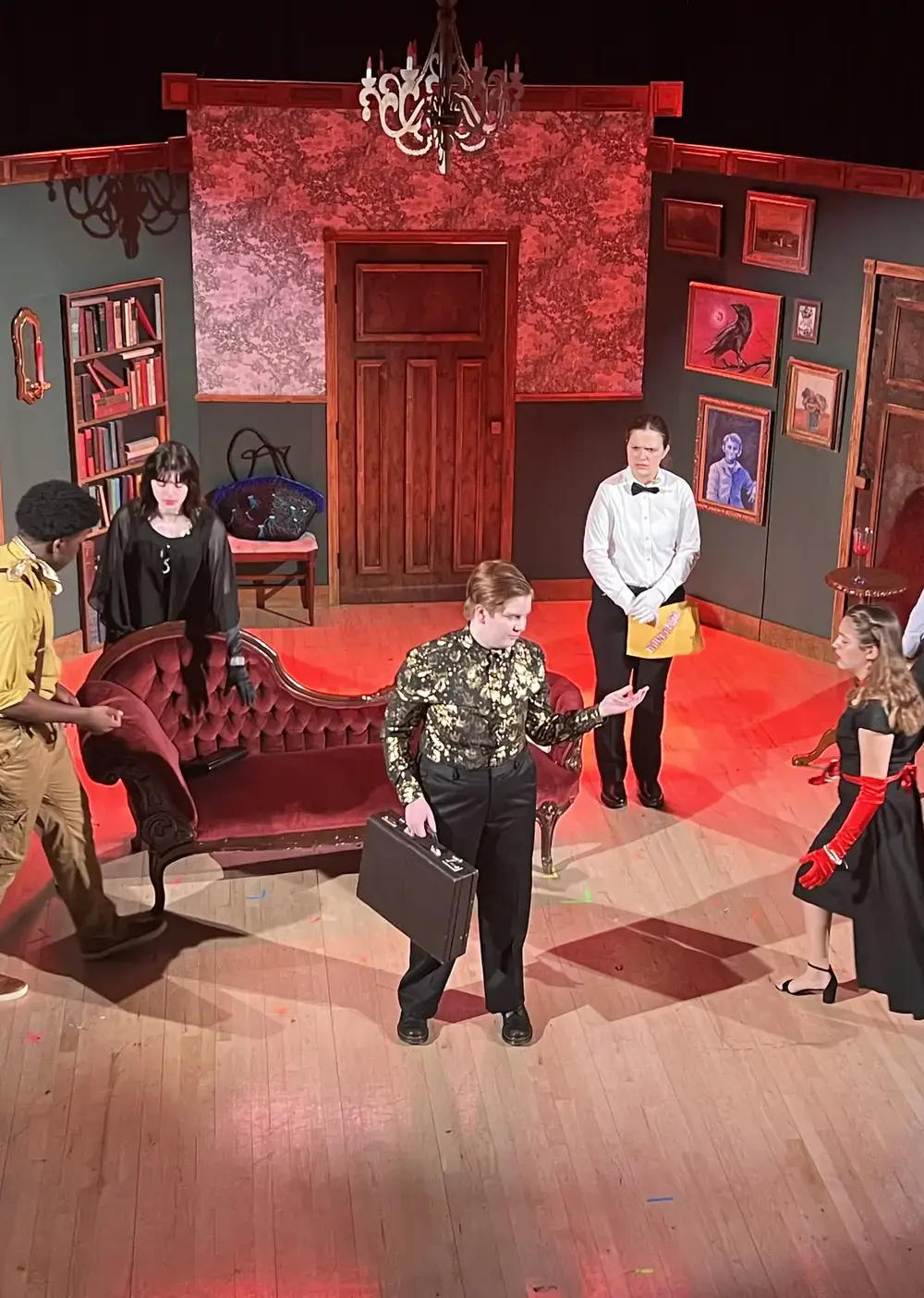 |
All students can audition for our two mainstage productions each year. Students are welcome to join the Stage Crew and are encouraged to take on leadership roles in design areas, such as lighting, costumes, or sound. We typically feature one musical and one play each school year. Recent productions have included Pippin, Mamma Mia!, Clue, The Little Mermaid, and Twelfth Night.
Friends Select has close connections with Philadelphia theatre organizations such as Philly Young Playwrights, Arden Theatre Company, Wilma Theatre, and Quintessence Theatre Group. Philadelphia theater professionals are brought in to work with our middle and upper school students on our productions, providing students with a professional experience.
Music
Throughout their upper school years, students can choose to sing in our choir, play in an orchestra, jazz band, lab band, or percussion ensemble, or explore music theory and composition on a more advanced level. Student interest is a factor in repertoire selection, and all musical styles are in the mix. Ensembles perform in our Blauvelt Theatre and at venues throughout Philadelphia. Interdisciplinary electives are also available. |
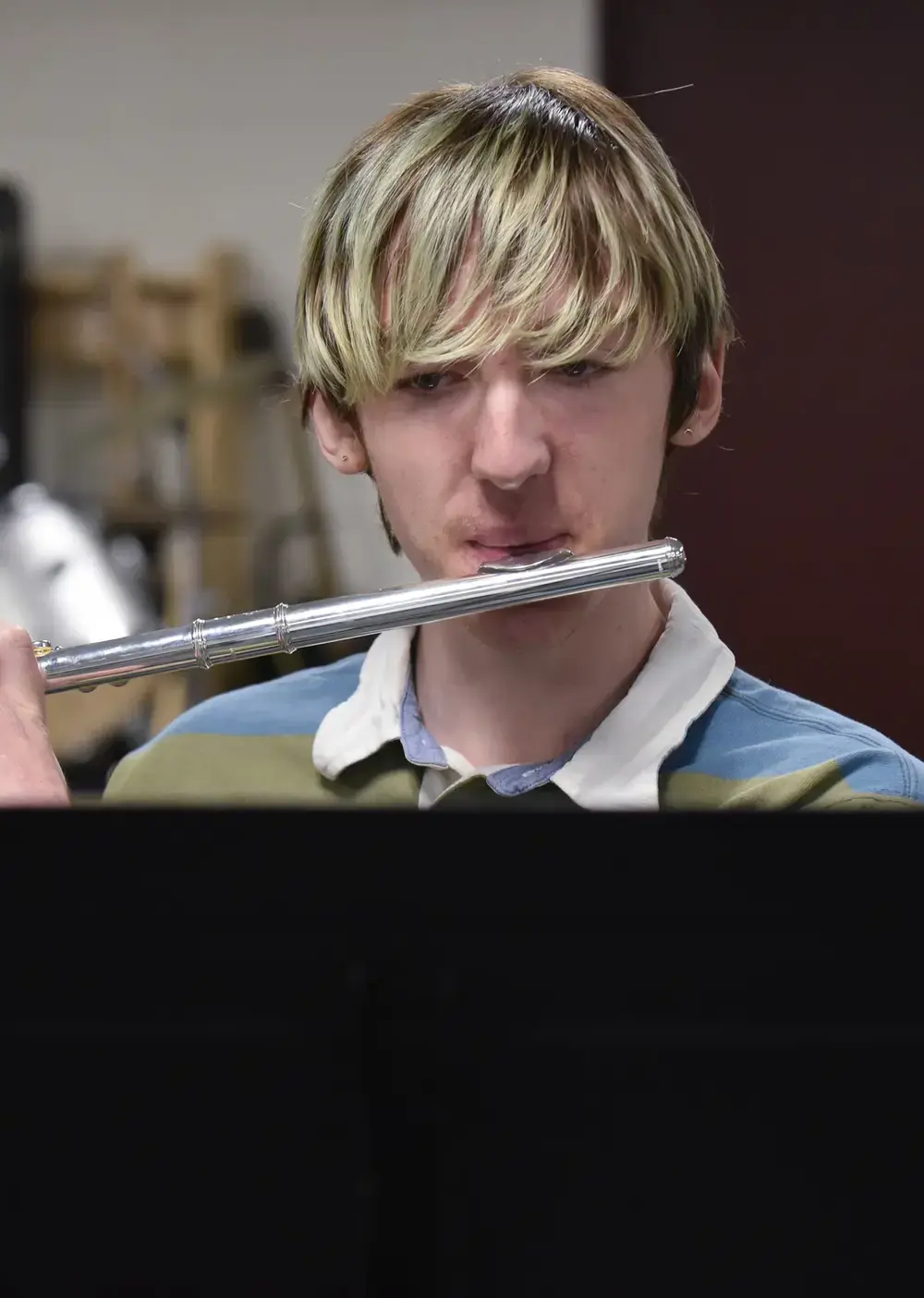 |

